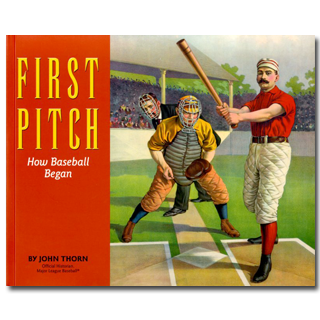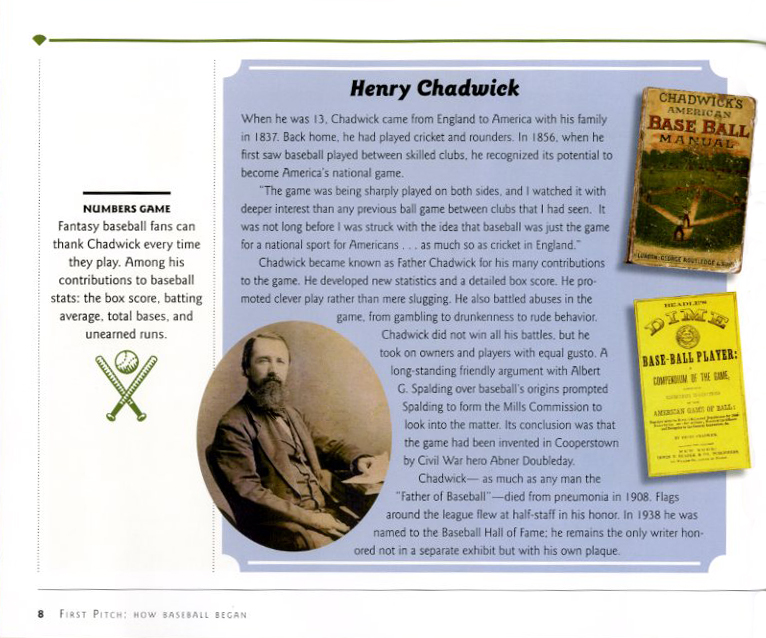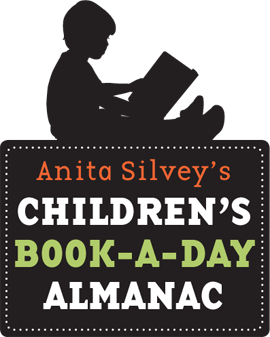
A FEW OTHER EVENTS FOR
SEPTEMBER 2:
- Happy birthday to Demi (The Empty Pot, One Grain of Rice), Ellen Stoll Walsh (Mouse Paint), and John Bierhorst (Latin American Folktales).
- It’s the birthdate of Eugene Field (1850–1895) who wrote Wynken, Blynken, and Nod as well as other classic children’s poems, and Lucretia Peabody Hale (1820–1900) author of The Peterkin Papers.
- When Teddy Roosevelt was vice president in 1901, he is reported to have said, “Speak softly and carry a big stick.” For a glimpse at Roosevelt’s childhood, read Teedie: The Story of Young Teddy Roosevelt by Don Brown.
- It’s also National Blueberry Popsicle Day. Bon appétit!
On September 2, 1850, Albert Goodwill Spalding was born on a farm in Byron, Illinois. As a boy he began to play baseball in boarding school, and as an adult he became one of the great pitchers in America. Spalding brought four pennants to his Boston Red Stockings club before he headed to the Midwest to play for the Chicago White Stockings. But today, of course, he is best remembered for his role as a sporting goods king, which made him a millionaire, and the Spalding baseball.
In First Pitch: How Baseball Began baseball historian John Thorn describes Spalding and a lot of other baseball legends to debunk the prevailing story that Abner Doubleday is the inventor of baseball. In 1905, Spalding appointed an elite group of baseball old-timers to determine the origins of the game. Unfortunately, the Special Commission on the Origin of Baseball made a mess of this assignment: they accepted the completely false story of a man named Abner Graves who credited Civil War General Abner Doubleday with inventing the national pastime.
Thorn continues the saga, providing evidence of the early origins of baseball and showing young readers how real research can be accomplished. It really doesn’t matter if you like baseball or not, this book presents a scholar’s journey to find the truth. Thorn takes readers through a score of primary documents, including a handwritten 1791 law from Pittsfield, Massachusetts that states “For the Preservation of Windows in the New Meeting House . . . no Person or Inhabitant of said town shall be permitted to play at any game called . . . Base Ball.” In the end, Thorn argues that the 1845 New York Knickerbockers might best be called the fathers of American baseball, as they put in place so many of the rules of the game we know today. Curses! New York triumphs once more in baseball over Massachusetts!
As Thorn builds his evidence, he weaves in information about American colonial life, the Civil War, even references to baseball in Jane Austen. The forty-page paperback published by Beach Ball Books has been beautifully produced with full-color art, sidebars, and a heavy paper cover with elegant flaps. Now the Official Historian of Major League Baseball, Thorn goes a long way in this book to entice young readers to think about baseball—and to think about the process of historical research. Anyone who wants to share the best narrative nonfiction with young readers will want to pick up a copy of First Pitch.
Here’s a page from First Pitch:
Originally posted September 2, 2011. Updated for .







Do you know of a similar site that suggests a book per week or month for reluctant middle and high school readers who need experience with chapter books?
Great site!
Anita: Congratulations on 1 year of Almanac postings!
FIRST PITCH looks like a good one. Baseball is my favorite sport, too. Go Sox!
Sheryl: Certainly some of my posts would work for your audience. I don’t know of any website like this one, which is why I started it.
Bob: You have expressed my very thoughts about baseball!
This could be an excellent birthday gift. Every little boy must have a copy of First Pitch.
This sounds like a book I’ll have to own. I love great children’s books but I love learning new things from some of them as well.
Christa McAuliffe, teacher in space, crew member space shuttle Challenger, was born on September 2, 1948.
Hey there Anita! I just wanted to say thank you so much for your daily almanac. I absolutely love children’s literature and am fascinated to see what new info you have on the authors. Keep up the great work!!